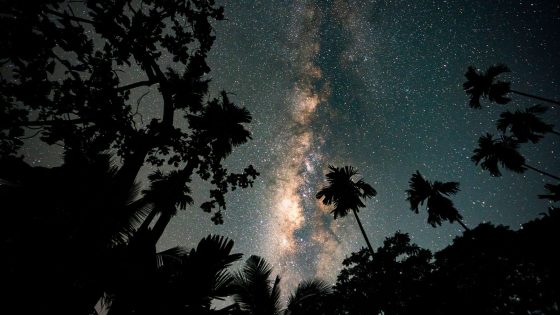The Delta Aquariids meteor shower will burst over our heads on Monday night, with clear skies making the show visible for much of the UK.
A meteor shower occurs when the Earth passes through a stream of debris left behind by a comet.
As that debris hits the atmosphere, it burns up, leaving bright trails behind it in the sky.
In the case of the Delta Aquariids, the comet responsible for the shower has been disputed, although it is now thought to be a sun-grazing comet catchily named Comet 96P/Machholz.
Although Earth began passing through the debris trail on 12 July, it peaks tonight, meaning this is your best chance to see it.
It will then carry on nightly, petering out around 25 August.
Comet 96P/Machholz is around four miles wide and takes just over five years to orbit the sun, says the Royal Observatory Greenwich.
The comet gets very close to the sun during its orbit and as it does, ice inside it vaporises and loosens small bits of rock and dust.
That rock and dust then forms the stream of debris that produces the Delta Aquariids meteor shower.
Read more from Sky News:
Mercury has a ‘layer of diamond up to 10 miles thick’
Stranded astronauts ‘are in no danger’
Weight-loss jab approved for preventing heart attacks and strokes
How to watch
Try to move away from lights to reduce light pollution and look towards the darkest parts of the sky once the sun has set this evening.
For the best view, NASA recommends watching during the ‘dark hours’ after the moon has set and before the sun has risen. For the UK, that’ll be from around midnight to 2am.
There are some clouds moving across the sky overnight but much of the UK should get some clear skies.
If you don’t spot the Delta Aquariids, don’t worry – on 12 and 13 August, the spectacular Perseids shower, which NASA describes it as the “best meteor shower of the year”, will peak.
Source Agencies



